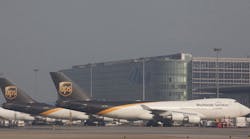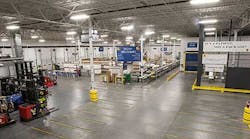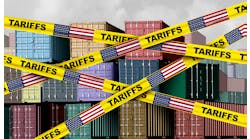UPS announced the official opening of its newly relocated Trans Pacific Hub at Taiwan Taoyuan International Airport. Situated at the airport’s Air Cargo Terminal Logistics Warehouse, the hub occupies close to 82,000 square feet, a 40 percent increase in size from its previous location. The hub is equipped with the latest sorting capabilities to support the needs of Taiwanese businesses looking to trade globally.
“The new hub is expected to increase export processing capacity by more than 40 percent, while also doubling the processing capacity of import handling,” said Anita Li, managing director of UPS Taiwan.
The opening of the hub is UPS’s latest initiative in building an integrated air network across Asia, connecting Taiwan to key markets in Asia, Europe and the United States. The hub operates 28 weekly cargo flights connecting Taiwan to key global markets. Leveraging this extensive network, customers can expect a 1-2 day delivery commitment to major cities in the U.S. and Europe.
“High-tech manufacturing is the largest vertical segment in Taiwan and these companies are facing increasing global competition,” said K.K. Leung, president, UPS North Asia District. “To take advantage of growth opportunities within the region and beyond, these companies need agile supply chains.
In other UPS developments, the company announced the opening of its new contract logistics distribution facility in Beijing. The 6,500 square meters of non-bonded warehouse space located 19 kilometers from Beijing Capital International Airport serves growing demand in China and is capable of servicing contract logistics orders with four-hour delivery within the metropolitan Beijing area and next-business-day orders for major cities throughout China.
Additionally, UPS has expanded its post-sales services in China. This network now provides same-day critical parts delivery within the metro area in 87 cities throughout China.
The opening of the Beijing facility follows closely after the opening of similar UPS distribution centers in Chengdu and Shanghai in 2013. Together, the centers support growing industries in China, including high-tech, industrial manufacturing, aerospace and retail. Capabilities of these facilities include order fulfillment, inventory management, kitting, packaging and other specialized value-added services.
According to market research firm Transport Intelligence, China is expected to overtake Japan in becoming the largest contract logistics market in the Asia Pacific region by 2016, driven by rising domestic consumption from a growing middle class and the gradual move of Chinese businesses up the value chain.





